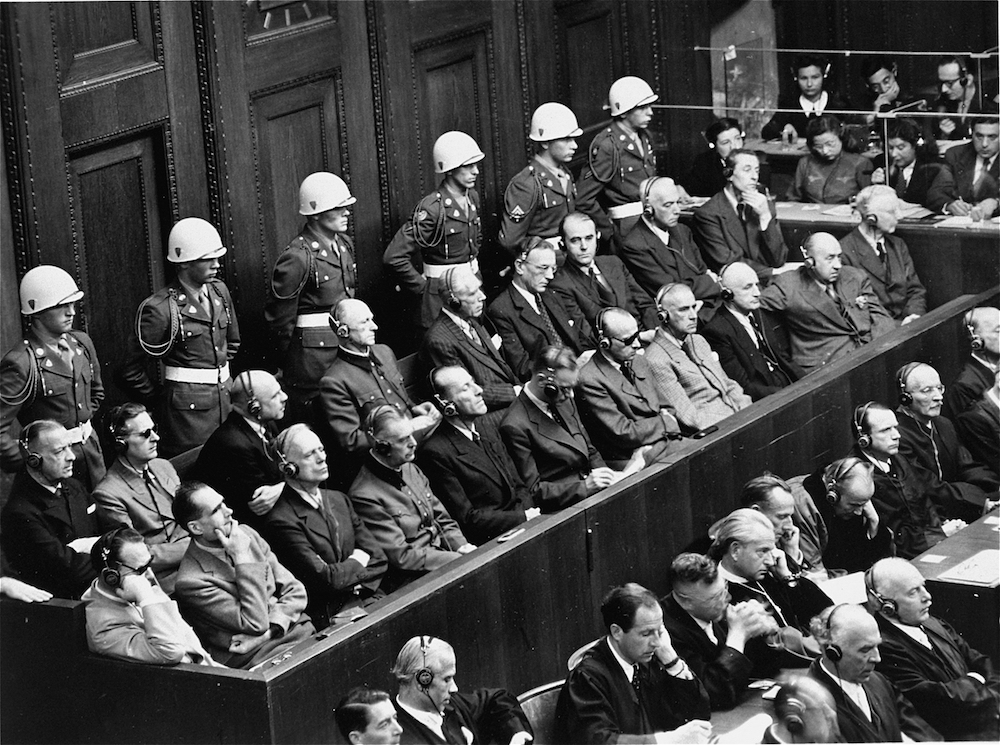The ICC is the International Criminal Court ( https://www.icc-cpi.int/ ),">https://www.icc-cpi.int/">... created in 2002 by the Rome Statute.
It& #39;s the first permanent international court for prosecuting various war crimes and "crimes against humanity" (e.g. genocide). Prior to its creation, there had been a host of ad-hoc tribunals, such as Nuremberg trials, Tribunal for Yugoslavia & Tribunal for Rwanda.
Here& #39;s the thing:  https://abs.twimg.com/emoji/v2/... draggable="false" alt="🇺🇸" title="Flagge der Vereinigten Staaten" aria-label="Emoji: Flagge der Vereinigten Staaten"> animosity to the ICC is not unique to Trump. So this isn& #39;t *quite* in the same class as the other IOs and treaty commitments that Trump as criticized (
https://abs.twimg.com/emoji/v2/... draggable="false" alt="🇺🇸" title="Flagge der Vereinigten Staaten" aria-label="Emoji: Flagge der Vereinigten Staaten"> animosity to the ICC is not unique to Trump. So this isn& #39;t *quite* in the same class as the other IOs and treaty commitments that Trump as criticized ( https://abs.twimg.com/emoji/v2/... draggable="false" alt="👇" title="Rückhand Zeigefinger nach unten" aria-label="Emoji: Rückhand Zeigefinger nach unten">is a dated list from @CNN) https://www.cnn.com/2019/02/01/politics/nuclear-treaty-trump/index.html">https://www.cnn.com/2019/02/0...
https://abs.twimg.com/emoji/v2/... draggable="false" alt="👇" title="Rückhand Zeigefinger nach unten" aria-label="Emoji: Rückhand Zeigefinger nach unten">is a dated list from @CNN) https://www.cnn.com/2019/02/01/politics/nuclear-treaty-trump/index.html">https://www.cnn.com/2019/02/0...
When President Bill Clinton signed it in 2000, he offered a key reservation: "The United States should have the chance to observe and assess the functioning of the court, over time, before choosing to become subject to its jurisdiction."
http://news.bbc.co.uk/2/hi/1095580.stm">https://news.bbc.co.uk/2/hi/1095...
http://news.bbc.co.uk/2/hi/1095580.stm">https://news.bbc.co.uk/2/hi/1095...
The administration of George W Bush then revoked the signature https://www.hrw.org/news/2002/05/06/united-states-unsigning-treaty-war-crimes-court">https://www.hrw.org/news/2002...
Obama& #39;s administration was more cooperative towards the court: it didn& #39;t seek to oppose its actions. Even then, the US did not rejoin the ICC. https://www.lawfareblog.com/was-president-obamas-visit-kenya-snub-international-criminal-court">https://www.lawfareblog.com/was-presi...
And now @realDonaldTrump is taking on the ICC in full: not just "avoiding it", but imposing sanctions against members of it https://thehill.com/policy/defense/514823-trump-administration-imposes-sanctions-on-icc-prosecutor-investigating-alleged">https://thehill.com/policy/de...
So what problem does the US have with the ICC?
In a word: Afghanistan https://www.cfr.org/timeline/us-war-afghanistan">https://www.cfr.org/timeline/...
In a word: Afghanistan https://www.cfr.org/timeline/us-war-afghanistan">https://www.cfr.org/timeline/...
There has been a consistent concern that the ICC could be used to prosecute US forces operating in Afghanistan (and elsewhere). https://www.washingtonpost.com/news/monkey-cage/wp/2017/12/08/the-icc-will-investigate-alleged-u-s-war-crimes-in-afghanistan/">https://www.washingtonpost.com/news/monk...
Note that prior to the ICC, tribunals were "ad-hoc". This often required support of the major powers to create.
Conceptually, we would say that such institutions had lower "sovereignty costs" https://www.cambridge.org/core/journals/international-organization/article/hard-and-soft-law-in-international-governance/EC8091A89687FDF7FC9027D1717538BF">https://www.cambridge.org/core/jour...
Conceptually, we would say that such institutions had lower "sovereignty costs" https://www.cambridge.org/core/journals/international-organization/article/hard-and-soft-law-in-international-governance/EC8091A89687FDF7FC9027D1717538BF">https://www.cambridge.org/core/jour...
Creating a permanent court raises the prospects of losing some control of what the court does (namely, who it chooses to prosecute) https://www.cambridge.org/core/journals/international-organization/article/credible-commitments-and-the-international-criminal-court/116A140C1A2A1C46B6982E6703BE7F0E">https://www.cambridge.org/core/jour...
In short, while Trump has escalated US opposition to the ICC, US opposition to the ICC is not new.
[END]
[END]

 Read on Twitter
Read on Twitter![What& #39;s the ICC and why does @realDonaldTrump dislike it?[THREAD] What& #39;s the ICC and why does @realDonaldTrump dislike it?[THREAD]](https://pbs.twimg.com/media/Eg_KA8aXkAEScWV.jpg)






